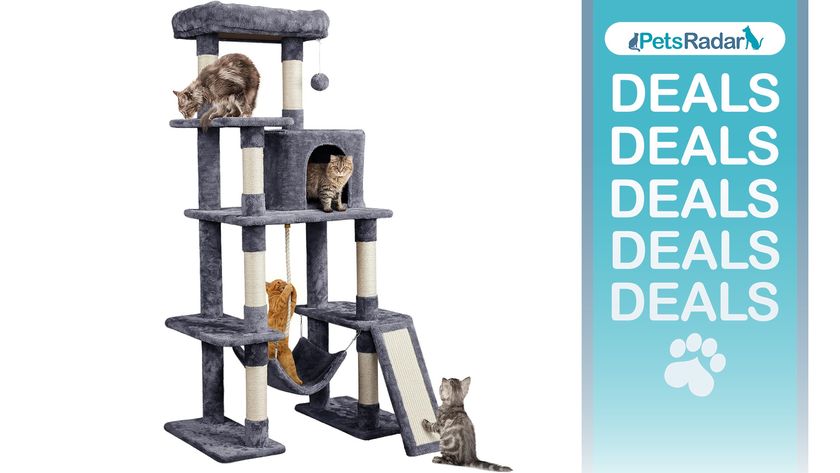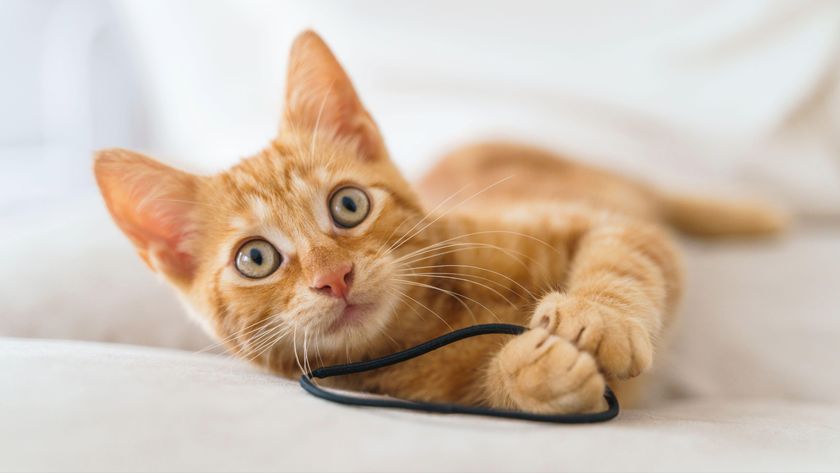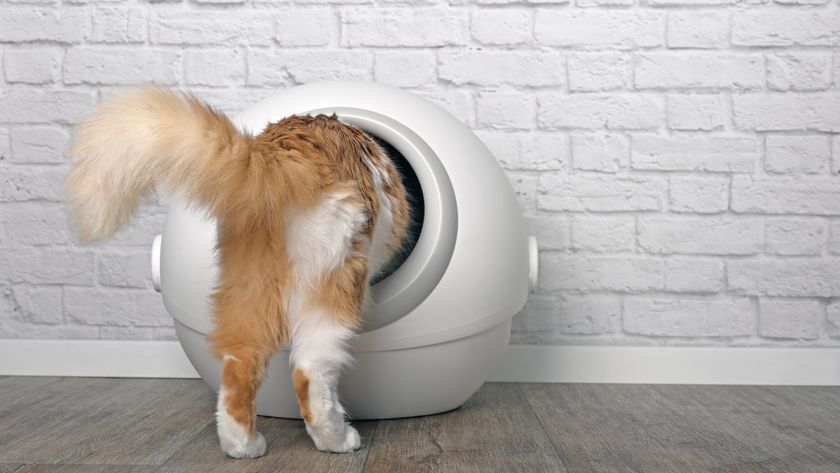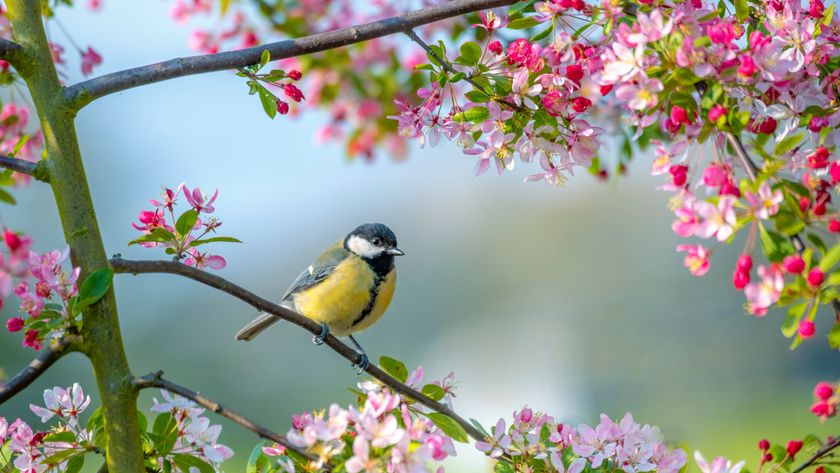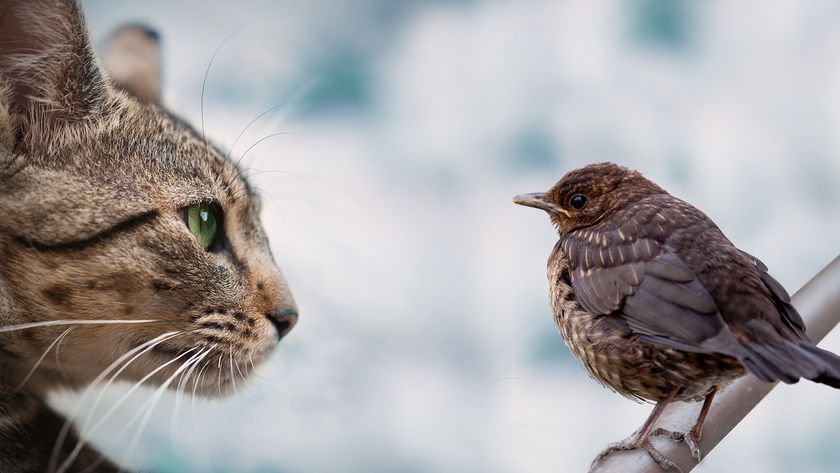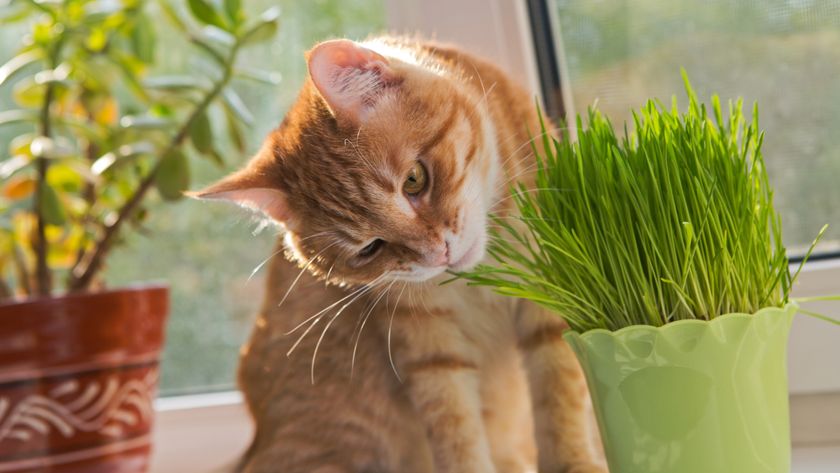Valerian for cats: Vet reveals the pros, cons, and effects on cats
Discover how valerian affects cats, how to use it safely, and how it compares to catnip
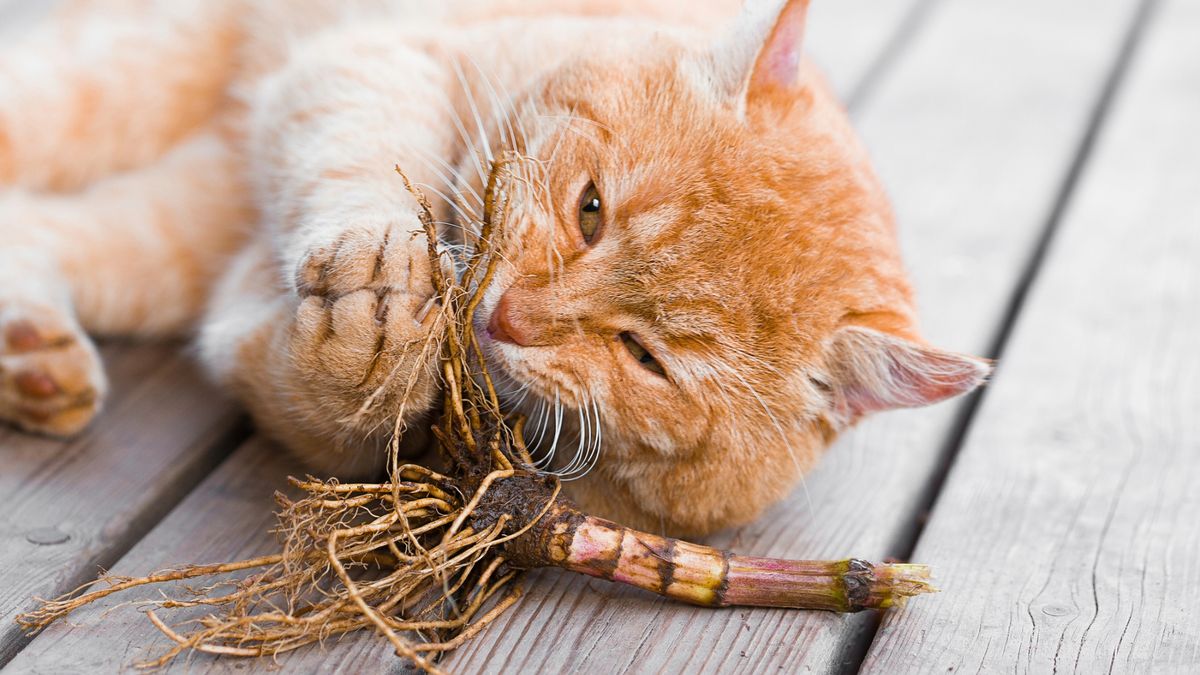
Valerian for cats has recently gained popularity as a potential alternative to catnip, but just how effective is it, and is it safe for your feline friend? If your cat doesn’t respond to catnip, you might be wondering if valerian could be a suitable option to use.
As a vet with over 13 years of experience working with cats, I’ve seen first-hand how different cat attractants affect feline behavior. While catnip is the most well-known stimulant, valerian offers a unique alternative that can provide similar effects. Some cats love it, while others may have a different reaction.
If you’re looking for a fun way to engage your feline with the best cat toys, valerian-infused products could be a great option. You can also explore some of the best catnip toys too.
In this feature, I’ll explain everything you need to know about valerian, how cats react to it, and whether it’s a safe and beneficial choice for your pet.
What is valerian?
Valerian (valeriana officinalis) is a flowering plant known for its strong, distinctive scent and its calming effects in humans. It is native to parts of Asia and Europe. While it is commonly used as a natural sleep aid for humans, it has a different effect on cats.
Valerian contains an active compound called actinidine. This compound stimulates cats and triggers a euphoric response similar to catnip. After sniffing valerian, cats will often start rolling around, rubbing themselves on things, purring loudly, and becoming very playful!
Cats can experience valerian in various forms, including:
- Dried valerian root: Often used as a stuffing for cat toys.
- Valerian-infused sprays: Can be applied to scratching posts or bedding.
- Valerian powder: Sprinkled onto toys or surfaces to encourage play.

How do cats react to valerian?
Cats react to valerian in a way that is similar to catnip, but the effects can vary. The active ingredient, actinidine, acts as a stimulant in some cats, common responses include:
- Increased energy and playful behavior
- Drooling/hypersalivation
- Rolling, rubbing, and purring
- Temporary euphoria or excitement
- Some cats may become overly excited or aggressive
Pros of using valerian for cats:
1. It can act as a natural stimulant
Very similar to catnip, valerian contains compounds that can trigger playful and energetic behavior in cats. This makes it a good enrichment tool, especially for cats that don’t respond to catnip.
2. It may help to reduce stress and anxiety
While valerian initially stimulates many cats, it later has a calming effect, which may help with stress-related behaviors such as excessive grooming, hiding, or aggression.
3. It can be useful for encouraging healthy exercise and play
Some cats become more active after exposure to valerian, making it a helpful way to encourage play in less active or overweight felines.
4. It may act as a potential sleep aid for restless cats
The sedative properties of valerian may help some cats settle down, particularly those prone to nighttime hyperactivity.
5. It may act as a natural alternative to synthetic calming aids
Valerian is a plant-based option for cat owners looking to avoid synthetic calming sprays or medications.
Meowy Jane’s Valerian Root Powder | Amazon
Meowy Jane’s Valerian Root Powder is a natural catnip alternative designed to stimulate and entertain feline companions. Made from finely ground valerian root, this product can trigger playful excitement or promote relaxation, depending on your cat’s individual response.
Cons of using valerian for cats
1. Not all cats respond to it
Just like catnip, some cats are indifferent to valerian and may show no reaction at all.
2. It can cause overstimulation which may lead to hyperactivity
While valerian has a calming effect on some cats, it can make others overly excited or agitated. This can result in excessive unwanted bursts of energy or even aggression.
3. It has a very strong odor
Valerian has a pungent, earthy smell that some people may find unpleasant. If used in toys or sprays, the scent may linger in your home.
4. It may cause digestive upset
If a cat ingests large amounts of valerian root, it may cause mild gastrointestinal upset, such as vomiting or diarrhea.
5. It is not suitable for all cats
Valerian may not be ideal for cats with certain medical conditions, such as heart disease or kidney issues. Always check with a vet before introducing valerian to a cat with health issues.
6. It can be unpredictable
Unlike catnip, which typically stimulates cats for a few minutes before they become calm, valerian can have a more prolonged or unpredictable effect.

Is valerian safe for cats?
Yes, valerian is generally safe for cats when used in moderation. However, there are a few things to keep in mind:
1. Always use it in small amounts: Too much valerian can cause your cat mild digestive upset.
2. Always supervise your cat: As mentioned above, some cats can become overly excited or slightly aggressive when exposed to valerian.
3. Avoid valerian supplements for humans: These may contain additional ingredients that aren’t safe for cats.
The safest way to introduce valerian is through cat-specific products, such as valerian-filled toys or powders designed specifically for feline use. If your cat has any pre-existing health conditions, consult your vet before using valerian for the first time.
Does valerian affect all cats?
No, not all cats react to valerian. Just like catnip, the response to valerian is controlled by genetics. The BMC Vet Research Journal suggests that around 50-70% of cats have a sensitivity to catnip, and a similar percentage may respond to valerian.
Kittens under six months old and senior cats are less likely to react, as the sensitivity to valerian (and other cat attractants) is linked to a cat’s genetic makeup and age.
If your cat doesn’t respond to valerian, you might want to try other alternatives like silver vine or Tatarian honeysuckle, both of which have been shown to stimulate cats that don’t react to catnip.

Is valerian stronger than catnip?
Valerian and catnip both have stimulating effects on cats, but valerian is often considered stronger and longer-lasting than catnip. It can be difficult to gauge as the reaction varies between individual cats. Some may respond more intensely to valerian, while others prefer catnip.
Here are the key differences:
- Active compounds: Catnip’s nepetalactone triggers a brief euphoric reaction by stimulating sensory neurons. Valerian contains actinidine and valerenic acid, which can either energize or relax cats.
- Effects on cats: Catnip typically causes playful rolling and rubbing for five to 15 minutes before fading. Valerian’s effects last longer and vary – some cats become hyperactive, while others relax.
- Sensitivity: About 50–75% of cats react to catnip, while valerian affects a different group, including some that don’t respond to catnip.
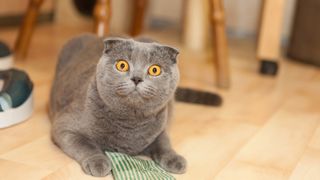
Alternatives to valerian
Silver Vine (Actinidia polygama) is considered even stronger than both catnip and valerian. It contains multiple active compounds, including actinidine and dihydroactinidiolide, making it effective for up to 80% of cats, including many that do not respond to catnip.
Tatarian honeysuckle (Lonicera tatarica) also has effects similar to those of silver vine, but fewer studies exist on its efficacy. Most vets recommend silver vine because it is generally reported to affect the highest percentage of cats. It tends to produce a more consistent, balanced response.
Valerian can be a great alternative to catnip for cats that respond to it, offering similar stimulating and playful effects. While not all cats react to valerian, those that do may experience a euphoric, energetic response followed by relaxation. Understanding these herbs and how they work can enable cat owners to choose the best option for their furry friend.
Read now: What catnip does to cats and is catnip bad for cats?

Emma graduated from the Royal Vet College in London in 2011. She has a keen interest in surgery and went on to do a postgraduate certificate in small animal surgery and was then awarded advanced practitioner status in the same discipline.
Edited by Megan Milstead.
This page was last updated in April 2025 by Emma Chandley.
PetsRadar Newsletter
Get the best advice, tips and top tech for your beloved Pets
Emma graduated from the Royal Vet College in London in 2011. She has a keen interest in surgery and went on to do a postgraduate certificate in small animal surgery and was then awarded advanced practitioner status in the same discipline.

